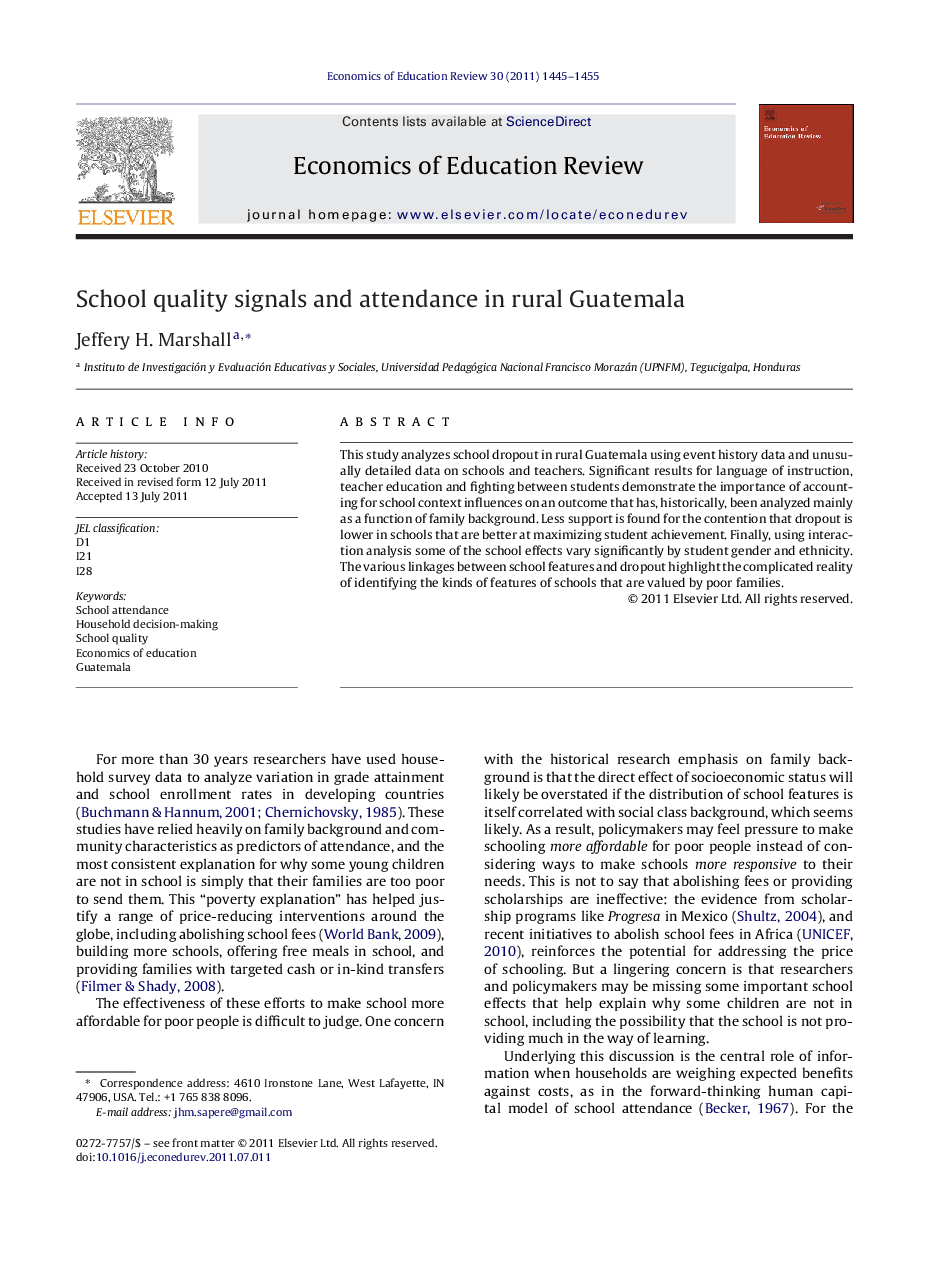| Article ID | Journal | Published Year | Pages | File Type |
|---|---|---|---|---|
| 354533 | Economics of Education Review | 2011 | 11 Pages |
This study analyzes school dropout in rural Guatemala using event history data and unusually detailed data on schools and teachers. Significant results for language of instruction, teacher education and fighting between students demonstrate the importance of accounting for school context influences on an outcome that has, historically, been analyzed mainly as a function of family background. Less support is found for the contention that dropout is lower in schools that are better at maximizing student achievement. Finally, using interaction analysis some of the school effects vary significantly by student gender and ethnicity. The various linkages between school features and dropout highlight the complicated reality of identifying the kinds of features of schools that are valued by poor families.
► Analysis of school attendance and dropout during four year period beginning in grade 1 for cohort of roughly 850 rural school students. ► School and teacher characteristics are matched with students by year, and include extensive list of indicators on teacher background as well as contextual and other measures of quality. ► Main results are that school attendance is associated with features of schools and teachers such as teacher ethnicity, class size and fighting between students. ► Less support is found linking attendance (or dropout) with the level of student achievement in the school, or the school's (modeled) value-added to average achievement. ► Findings highlight importance of taking into account school features and contextual factors, and avoiding explanations of dropout that focus mainly on household's ability to afford schooling.
